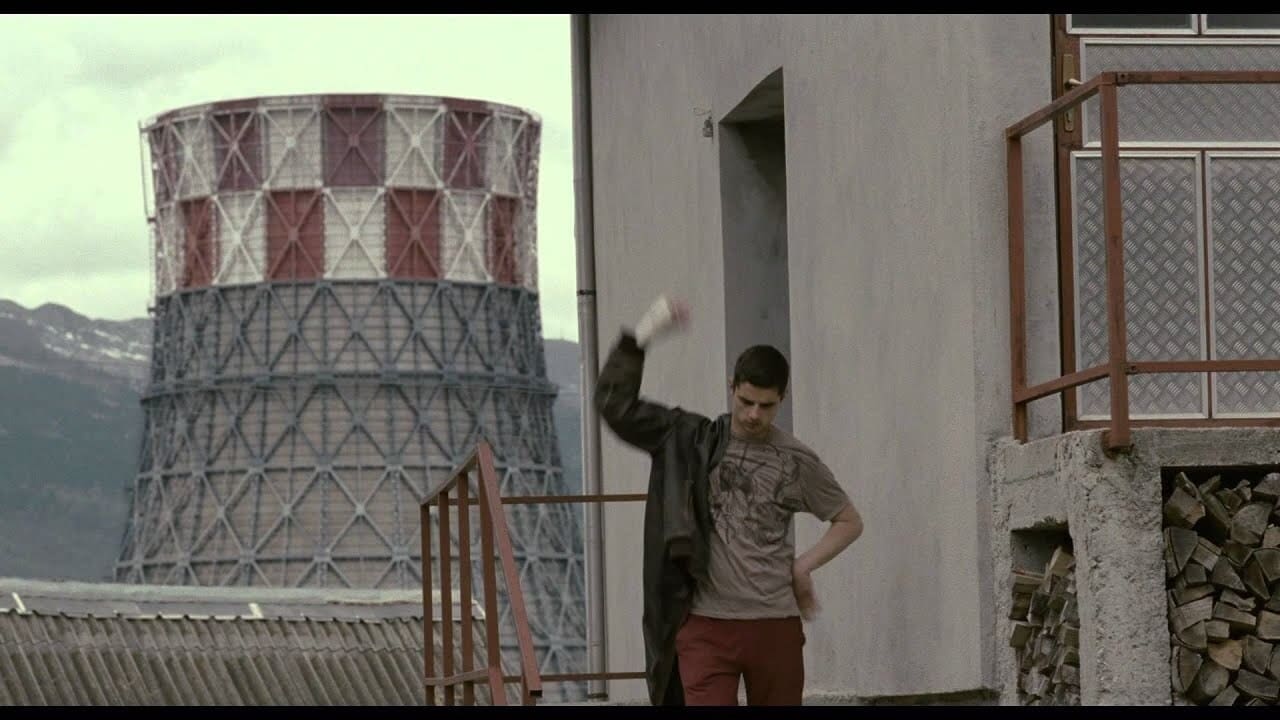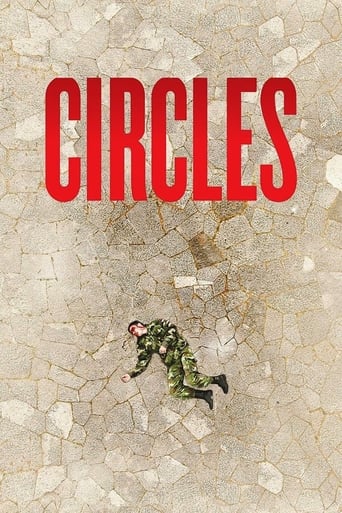

Krugovi (Circles) explores the consequences of civil war in former Yugoslavia, which is still a very sensitive subject in the area. The discussion surrounding such a movie usually overshadows its message. Due to the complex nature of the conflict and numerous parties involved, movies about this particular civil war tend to paint a simplified picture and imply how one of the sides were "more guilty". This might not be interesting or even anticipated by an unacquainted viewer, yet it takes a toll on the artistic merit of the movie. Angelina Jolie's In the Land of Blood and Honey (2011) is probably the best example.The authors of Krugovi (Circles) overcame this challenge by a script in which the main protagonists are mostly Serbs. A group of Serbian soldiers kicks off the storyline and their actions would influence their lives and the lives of the people around them even twelve years later.Probably the best thing about this movie is its atmosphere. The grinding sadness almost pours from the screen. However, this is not a tragedy, rather a story about common people whose small deeds might make the world a better place although they won't right the wrongs of the past.Krugovi (Circles) is so far the best feature film by the Srdan Golubovic. According to IMDb.com he directed only three feature films, yet he displayed an amazing ability to improve his output throughout his career. This one set the bar pretty high and it is with great expectation that i await his next movie.
... View MoreIn Circles, Serbian director Srdan Golubovic dramatizes the need for warring factions to move beyond their animosities. The film is framed by the start and the end of a scene in Bosnia, 1993, based on an actual event. The golden Serbian off-duty soldier Marko sees three colleagues brutalize a Muslim civilian, the tobacconist Haris. When Marko intervenes, Haris runs off but the soldiers turn on Marko and kill him. Marko's young doctor friend watches helpless, while other citizens look away.The bulk of the film shows the characters still dealing with that death in Serbia, 2008, their wounds having outlived the war. Marko's fiancée Nada drifted off after her loss, married a brute and is now trying to escape his menacing pursuit of their young son. Haris helps her find a job and flat, then pays for her son's passport to enable her escape to Bosnia, where her husband faces arrest. The husband gives Haris a second severe beating but refrains from killing him, his eyes tearing up when he realizes he has lost his son. Marko's aging father Ranko is still alienated from the widow of one of Marko's assailants. He refuses to employ their grown son on his project, to relocate an old stone church from the power plant to a country hilltop. The church is an emblem of taking the moral high road. At the young man's persistence the old man softens, gives in, comes to accept him, and as he speeds him to a hospital after an accident cradles his head and tells the driver the boy is his son. Haris phones Ranko on the anniversary date of Marko's death. Now he calls him after this second beating. Though living in Germany now, Haris repays his debt to Marko by attending to his survivors. Marko's doctor friend is now the only surgeon who can perform the operation that will save the life of Todor — the leader of Marco's assault — after a serious traffic accident. The man recognizes him and futilely tries to get a different surgeon. The doctor is at first unwilling to save his friend's killer's life, especially when the brute denies remorse and calls him a "pussy" for his moral considerations. Post-operation this brute too tears up in gratitude for having been saved. One recurring motif is the long shot of a long winding road, like the one down which Ranko drags the crippled worker. It's an emblem of the long route to redemption, through forgiveness.The title has two implications. At one point Ranko muses that a stone dropped in water sends out spreading circles, but a good man's deeds don't. In this film Marko's death ends up having positive effects on the others, on Haris immediately and on the others up to 12 years later. They manage to break the circle of violence and hatred begetting violence and hatred. For more see www.yacowar.blogspot.com.
... View MoreAmazing... Just... Amazing... This movie is an absolute good. One of the best Serbian movies ever. Srdan managed to make an even better movie than Klopka (which I thought is going to be very hard). I actually can't decide what is more amazing - music, cinematography, story or acting, and I can't decide that because everything is f**king INCREDIBLE! Everyone should see this film. It's about what a single (nonselfish), heroic act is capable of doing to other people, and weather it can make a difference. The movie is based on a true story, but it only uses it to raise some big life questions. A DEFINITE MUST SEE. (I'm not kidding, watch this movie)
... View MoreCircles, aka Krugovi, is based on the true story of a Serbian soldier who was killed defending a Muslim civilian from other soldiers while he was off-duty. The results of this event are fictional but that kernel of truth grounds this film in a firm realty. The majority of this film takes place a decade after the Serbian-Bonsian conflict is over but its effects are present throughout.What makes this film great and sets it apart from a straight-forward narrative is the way it skillfully withholds information and only reveals small details of what happened and the history that has ensued. This keeps the audiences rapt attention and makes it much more tense than it should be because we don't know how the characters are going to react because we don't fully know what happened. The characters don't go off on a lengthy moralistic speech or expository dialogue. The communication is much more realistic in that they don't say what they are thinking and they hide information from each other – much like real life. The cinematography is great, from the millennia old desert and old way of life to the inside of the BMW plant which looks futuristic; this is a film with skillful hands behind the camera. Really, this film should not be as great as it is, but the constant intrigue and slow unraveling of the mystery make this an entertaining and emotional ride. The actors too are compelling and well casted in their roles; this film would not work on any level without their excellent performances. The actor who plays the mobster-father (the IMDb credits are incomplete), even though his role is fairly small in comparison, should be the villain in every movie, he just exudes fury and hate. (He looks like an evil Michael Sheen – which is actually Andy Sirkis so maybe he looks like an evil Andy Sirkis?)From the title of this film, I assumed this would be about the circular nature of violence but in fact this can be taken two ways, it's more about the circular nature of kindness and good, and a more-accurate title would be "ripple" or the ripple-effects of a singular kind-act.
... View More